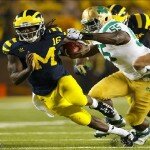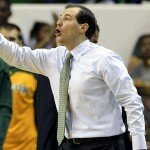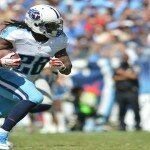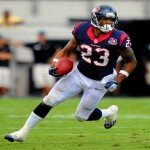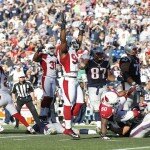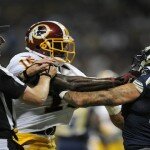When the San Diego Chargers traded up in the 2010 NFL Draft to take running back Ryan Mathews, they assumed he would immediately emerge as the workhorse for their ground game.
That, however, hasn’t been the case so far for Mathews.
Mathew’s rookie season was a big disappointment for the first-round pick, as he compiled only 678 yards and seven touchdowns on 158 attempts – 4.3 yards per carry – while playing in 12 games. Several of his outings were cut short by injuries while others were hampered by untimely fumbles. Considering that Chargers head coach Norv Turner expected him to get over 250 carries and blow past the 1,000-yard mark, Mathews had little to be proud of after the 2010 season came to a close.
Still, there were a few positives. When Mathews wasn’t battling through an injury or fumbling the ball at critical points in the game, he displayed explosiveness. When the pigskin was in his hands, he burst through holes and bulldozed defenders. In the open field, he often made would-be tacklers look silly and racked up tough after-contact yards.
There appeared to be a light at the end of the tunnel.
So when 2011 rolled around, Chargers camp was abuzz with the thought of having a healthy Mathews back in the mix to start the season. Excitement filled the air as Super Bowl expectations swirled all around San Diego.
Unfortunately, it didn’t pan out quite as hoped for Mathews and the Chargers.
San Diego quarterback Philip Rivers had the worst season of his career. The Chargers struggled to claim victory in winnable games and couldn’t muster a record worthy of the playoffs… in the AFC West.
As for Mathews, his progress was unmistakable but still not enough. He managed to stay relatively healthy and in the lineup for 14 games, racking up 1,091 yards and six touchdowns on 222 carries. Not only had his yards per carry increased to 4.9, but he had also developed into a consistent receiving option out of the backfield, hauling in 50 passes for 455 yards.
And yet, it wasn’t enough from the Chargers’ running back who was once considered a prodigy. His lack of touchdowns, consistency and ball security muddled the respectable numbers that he put up throughout his sophomore season.
Now, the 2012 season has arrived and yet again it’s time for Mathews to quiet critics and pay dividends for the Chargers. The team expressed their continued confidence in him by replacing the departed Mike Tolbert with Ronnie Brown, whose only real value comes from his experience and Wildcat prowess.
Mathews missed 99 percent of the preseason after suffering a fractured clavicle, allowing the injury concerns to resurface after what seemed like a reassuring offseason. Despite the typical lengthy recovery time of the injury, he appears ready to return for the Chargers’ Week 2 showdown with the Tennessee Titans. If that’s the case, San Diego will be expecting him to make an instant impact as they strive to keep their standing as a contender intact.
Assuming he can get healthy and stay that way, Mathews will have the opportunity in 2012 to prove whether or not he can live up to his billing as one of the NFL’s next great feature backs. The natural talent and physical tools are there, but the negatives will soon begin to outweigh the positives if the setbacks don’t stop.
With running backs becoming so interchangeable in today’s pass-happy NFL – just ask the Washington Redskins – the Chargers’ patience has to be wearing thin. If Mathews struggles to develop some semblance of consistency in 2012, I wouldn’t be surprised to see the trade rumors start to swirl at season’s end.
Make sure to follow Gil Alcaraz IV on Twitter and like him on Facebook.




